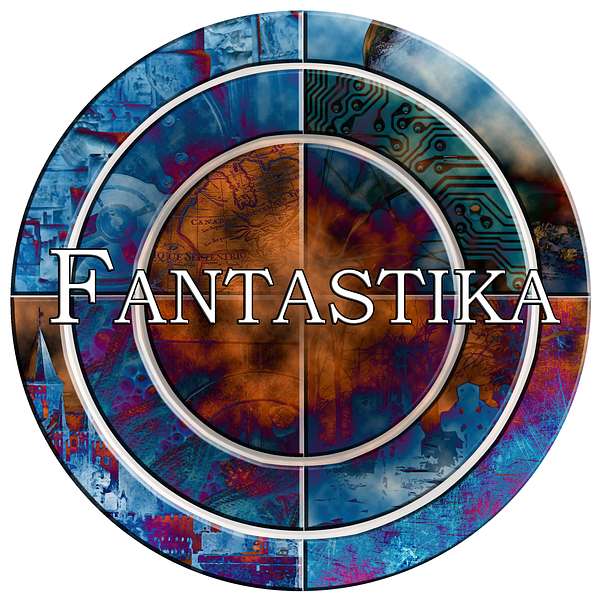
Fantastika Journal
Fantastika Journal
Lesbians in Space with Swords
This podcast is part of the LGBTQIA+ Fantastika Graphics Symposium.
Join the discussion on discord (https://discord.gg/fMsu2RRzy2) or on our zoom webinar on 20 Nov 2021. See fantastikajournal.com for details.
Background music by scottholmesmusic.com
Podcast by: Héloïse Thomas
Lesbians in Space with Swords:
Sapphic Representation in Contemporary Graphic Narratives
This podcast discuses the ways lesbians and queer/sapphic female characters are represented in three speculative works – two graphic novels, Cosmoknights by Hannah Templer and On a Sunbeam by Tillie Walden, and one animated series, the rebooted She-Ra and the Princesses of Power – and how these modes of representation combine specific aesthetic and symbolic elements to produce certain political framings of lesbian and sapphic identities as emancipatory.
The modes of representation are tied to the specific worldbuilding of the graphic narrative, and notably to the question of whether patriarchy and gendered oppression are structural elements or not: Cosmoknights depicts patriarchal feudalism in space, while On a Sunbeam portrays a world with seemingly only female and non-binary characters, and the world of She-Ra, while clearly contending with imperialism, does not seem to feature patriarchy as part of its hegemonic system.
Depending on each narrative’s political structures, lesbian relationships may be a form of dissidence or the norm, but in all cases, the sapphic main characters are always positioned as resisting hegemony and as subverting categories of gender and sexuality, and thus contributing to a more expansive vision of what womanhood or lesbianism entails. This is underscored by the visual representative choices of each graphic narrative, from the characters’ gender presentation (physical appearance, clothes, etc.) to color palette and drawing style. This podcast thus argues that these three graphic narratives can provide us with multiple new ways of thinking the lesbian (/queer/sapphic) as a politically crucial figure of subversion and liberation.
About the Speaker: Héloïse Thomas (she/they) is getting ready to defend their PhD dissertation on history, futurity, and the apocalypse in contemporary North American literature. She has authored articles on the poetics and politics of memory, pandemic imaginaries, and lesbian representation, and currently teaches in the English department at Lyon 3 University.
Disclaimer: The information and ideas in these podcasts are the property of the speakers. Fantastika Journal operates under the Creative Commons Licence CCBY-NC. This allows for the reproduction or transcription of podcasts for non-commercial uses, only with the appropriate citation information. All rights belong to the author.
The views expressed in these podcasts do not necessarily reflect the opinions of Fantastika Journal and its editorial board.
This podcast edited by Kerry Dodd